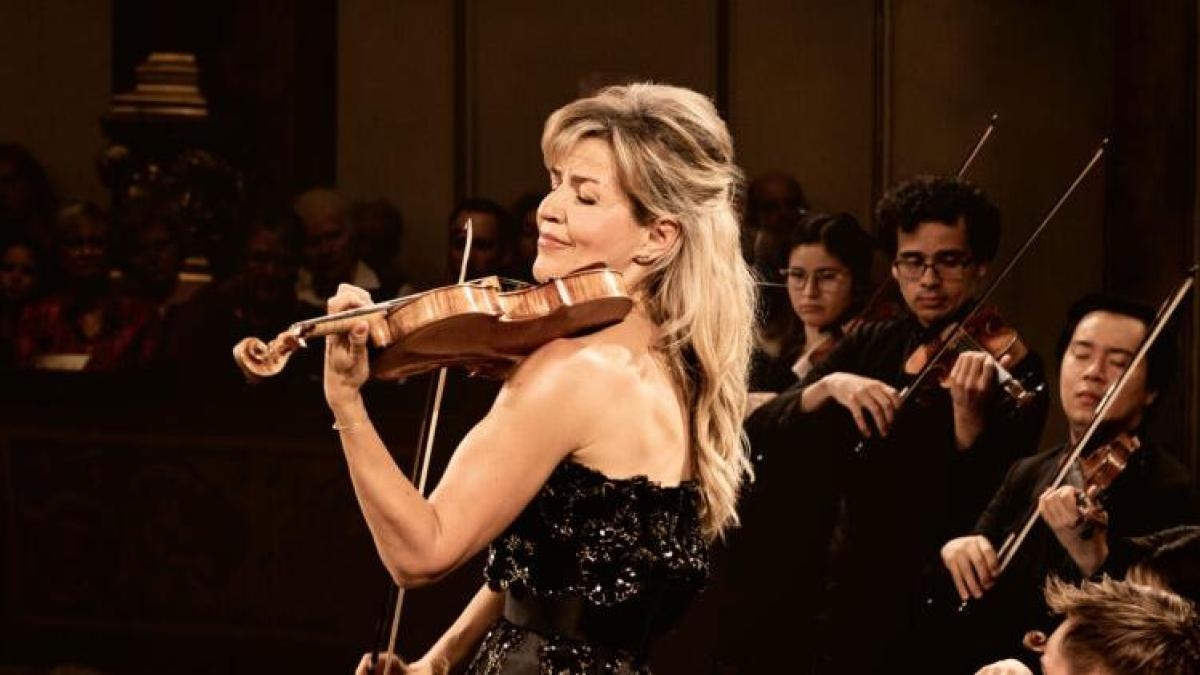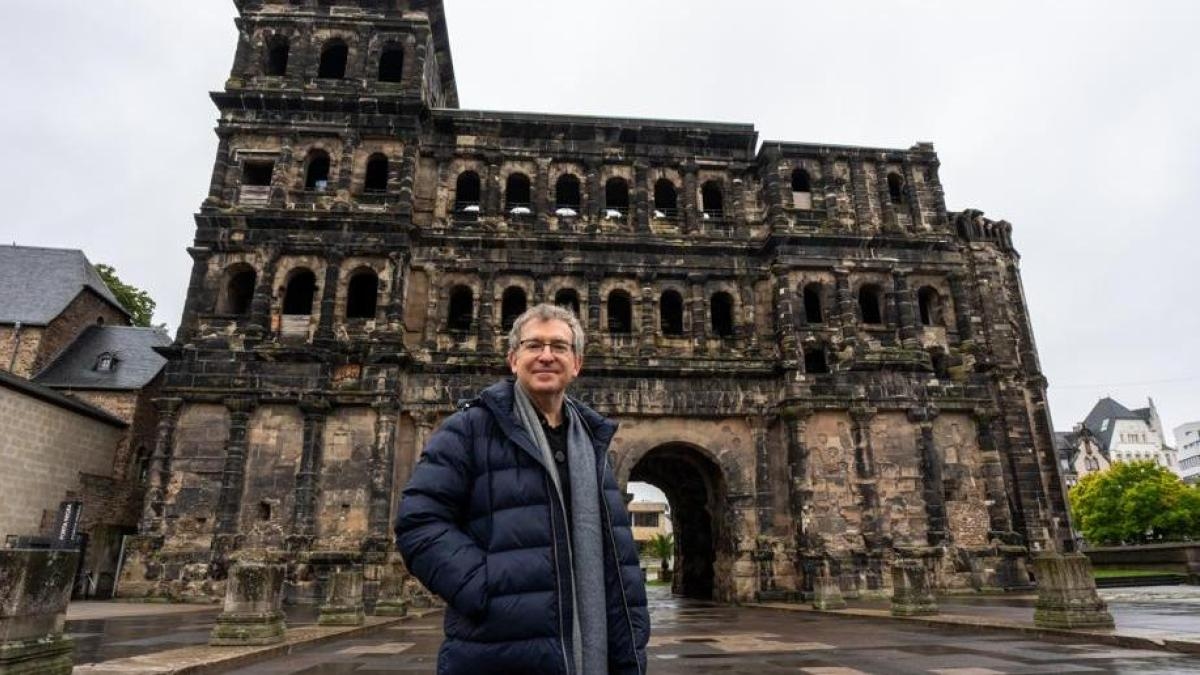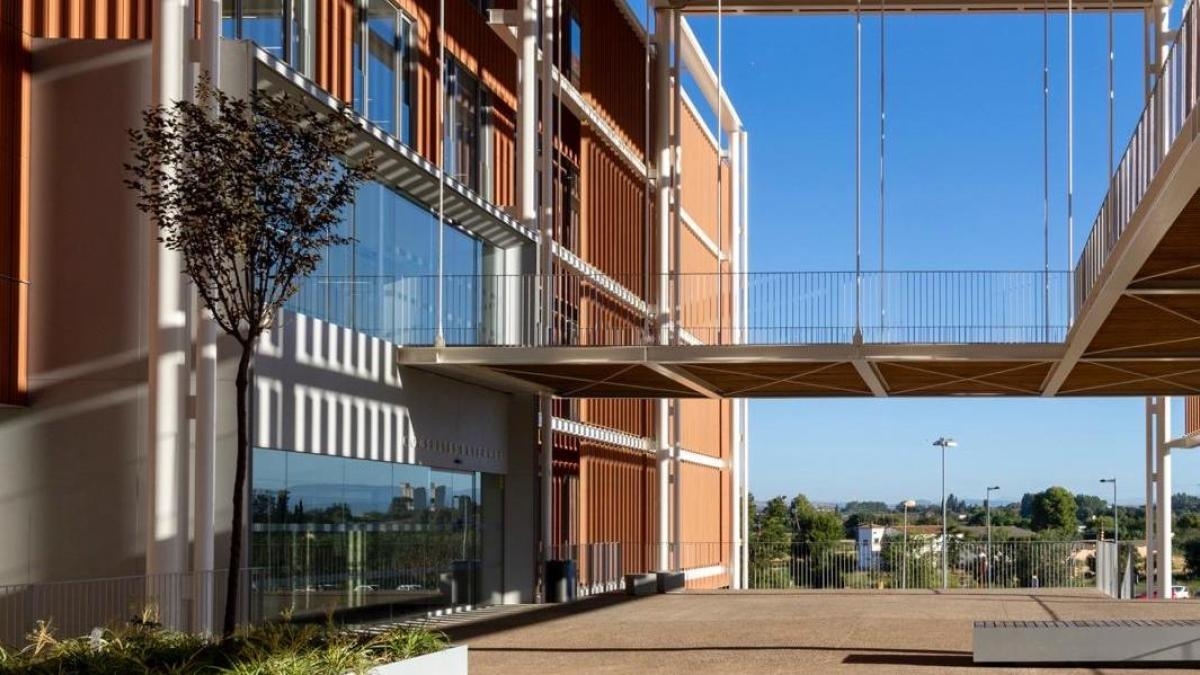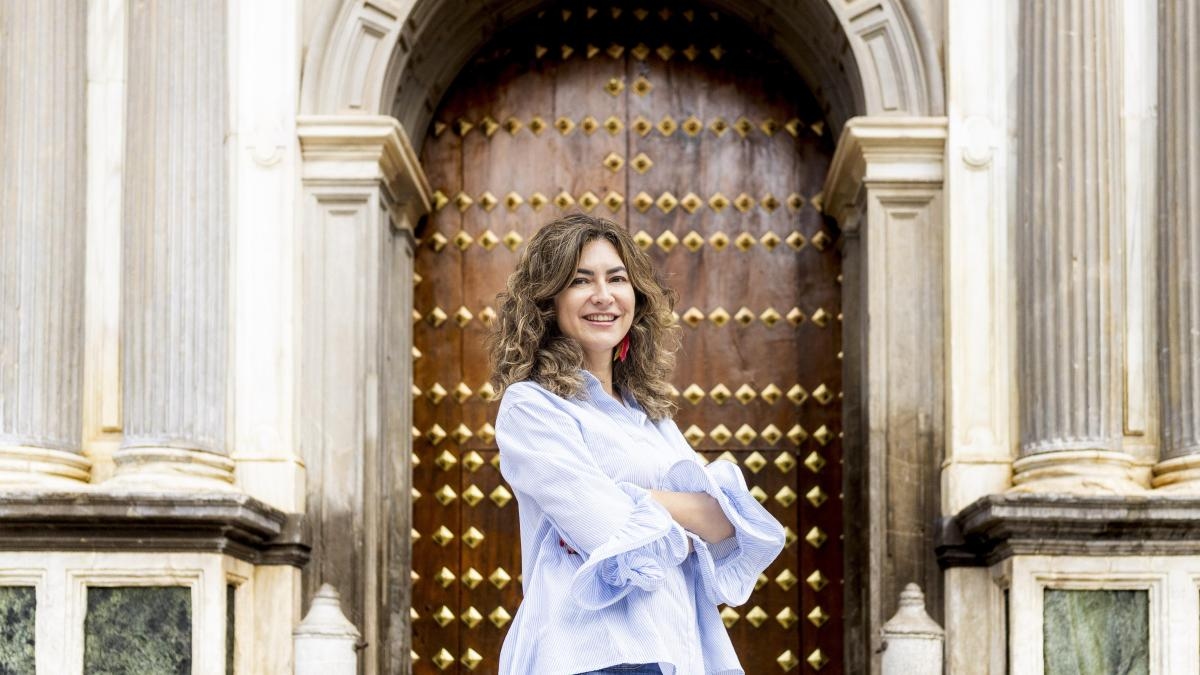Anne-Sophie Mutter, violinist: “After a more sterile period of playing, we will once again find a more human approach to music.”

She is the queen of the violin. At 13, she was already performing with the Berlin Philharmonic, conducted by Herbert von Karajan, and her career has been unstoppable ever since. Concerned about the future, commissioning works to advance the repertoire, as she does now from two Iranian composers, Anne-Sophie Mutter (Rheinfelden, 1963), who has been on stage for half a century, opens this Monday the Palau de la Música's flagship series, Palau 100, alongside pianist Yefim Bronfman and Spanish cellist and Mutter disciple Pablo Ferrández (Madrid, 1991). Together they will perform Beethoven's Archduke Trio and Tchaikovsky's Trio in A minor .
The trios you'll be performing at the Palau require a lot of stamina. Why the "Archduke," why Tchaikovsky?
Yes, a lot of stamina. Archduke Rudolf was a friend of Beethoven's, not just a mentor, and the trio is almost a portrait, a very elegant and lyrical piece. And Tchaikovsky's work is a portrait of his former mentor and teacher, Anton Rubinstein. It's a tribute, in a way, to their lives. These variations are sandwiched between them, there's a waltz, a mazurka, the piece is gigantic, in a way, it's a triple concerto, very symphonic. And yes, it pushes us all to the limit, particularly the piano, which plays nonstop. It's a very intense emotional journey. And I think I can speak for all three of us when I say that they are some of our favorite compositions because they have such versatility of style and depth of emotion.
You've talked about friendship in both pieces. What's your relationship like with Bronfman after so many years, and now also with Pablo Ferrández?
I've known Pablo for ten years, when he auditioned for my foundation and was a member of the Mutter Virtuosi for a time, and it's absolutely moving to see what a wonderful, authentic, and intense musician he's become, and to see him also interested in contemporary music, trying to expand his repertoire. I couldn't be happier to play with him in his home country, and in the company of one of the most wonderful chamber musicians working today, not just a solo pianist, Yefim Bronfman.
She said she'd take a break at the end of 2024 to reevaluate her future as a musician. Where do you want to go?
I take breaks from time to time, yes, and I've started an incredible project, which Pablo is part of, which is recording all the pieces that have been written for me that I haven't recorded yet. You'll see the release of three or four CDs in the next few years of pieces by Thomas Adès, André Previn, Sebastian Currier, Jörg Widmann, his quartet study on Beethoven, where Pablo plays the cello. And that's something I could probably consider my legacy. In 2027, I'll celebrate 50 years on stage, and I decided it's important to record these contemporary pieces because that way they'll have a life. When they exist on streaming services and CDs, the next generation will know of their existence and will also want to play this repertoire. And it's important to refresh, renew, and expand the repertoire. Every generation needs to do that. I feel very obligated and very motivated to fulfill that part of my role as a mentor and musician.
The Mutter style “I play every concert as if it were my last and I always give it my all.”Speaking of the new generations, you said there's a crisis in violin playing, which is sometimes too one-dimensional, even boring. What's the cause?
We live in a time where the piano reigns supreme; there are so many fantastic pianists... And there are extraordinary cellists. I'm not sure there are as many independent-minded violinists. When we look at the playing style of 30, 40, 50 years ago, we notice that the aesthetic of Pau Casals' generation, Szigeti's, was about finding a personal voice and being quite free, like in jazz, in a way, with bar lines. That gives the music a more narrative quality. And it's important in music that we have that narrative. I hope we'll return to that. I see it in many cellists and pianists. And I'm sure that after a more sterile period of playing, we'll once again find a more human and individual approach to music. I have great confidence in that.
Would you dare to define your style?
I play every concert as if it were my last and I always give it my all.
How important is your personality, your worldview, to your music?
At the end of the day, we bring our humanity to the stage. I love giving benefit concerts. I'm preparing one for the World Health Organization to fight world hunger. 673 million people on the planet suffer from hunger. Isn't that terrible? As a human being, it's important for me to try, to shed light on the fact. Even if it's in a small way, to raise awareness. We all need to work together to raise awareness about the needs of others who aren't in as privileged a situation as we are, living in freedom and peace and having food. It's part of being a musician, because as a musician, I have a small voice, and I want to use it for the good of humanity. And once you see that as the focal point of your life, it can enrich your ability to convey more than just notes to the audience.
You have stated that the question of the meaning of life always arises for you, beyond your birthday.
Do I think about it a lot? Yes, of course. Do I have an answer? No (laughs). I love sharing, I love people, especially children and young people. Sharing music, a plate of pasta. Having a collective cultural memory—that's what music is all about. It shows us that we have a collective cultural heritage, and although we have different roots and traditions, which is wonderful, we also discover that we are much more similar to each other in our dreams and desires, and I find that fascinating. Music is a wonderful catalyst for that.
The future of classical music “Society is more self-centered and individualistic, and music trains us to be part of a group and learn to be a leader.”Is the classic in good shape today?
Music has a great future. The art of music will likely endure long after humanity has vanished from this planet. We need to be aware of the need to bring literature, painting, sculpture, and of course, all kinds of music into the lives of young children, so that they have more information and options. Politics and our education system seem to be moving further and further away from the arts. But the ancient Greeks considered the arts to be at the heart of the process of becoming human. In many places, society is moving toward a more self-centered and individualistic world, and I think music is an excellent training ground for learning how to be part of a group, but also how to be a leader. And more of that in the classrooms of six- and seven-year-olds would certainly contribute to a more peaceful life, I'm convinced.
Are you still commissioning musical works now?
Yes. I just recorded a fantastic piece by an Iranian composer, Aftab Darvishi, called Likoo . And I commissioned another piece by another Iranian composer, a triple concerto for violin, viola, and cello. And next Friday, I'll be performing two pieces written for me. A world premiere at the Johann Strauss Gala on the occasion of Strauss's 200th birthday. One is a waltz by John Williams, the one and only, When the World Was Waltzing . And the other is my first collaboration with Max Richter, a three-movement piece. I'm really looking forward to this premiere. So I'm practicing Williams and Richter while playing Tchaikovsky and Beethoven. It's very exciting to commission works, and it's important for the next generations. I like to be on the edge. And of course, whenever I'm faced with a contemporary composition, a new composition, I panic in case I can't decipher it. It pushes me to the limit, and I like that.
lavanguardia




